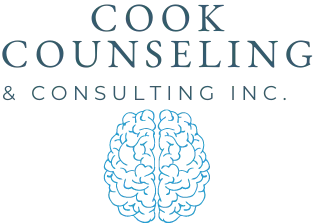Self-criticism can be an overwhelming experience that affects our self-esteem and overall well-being. However, there are effective strategies that can help combat self-criticism and promote a healthier mindset. Here are some practical steps to help you overcome self-criticism and foster self-compassion.
Recognize and Acknowledge Your Self-Critical Thoughts
The first and most crucial step in addressing and combating self-criticism is cultivating an acute awareness of your negative self-talk. Be mindful of the thoughts that invade your mind when you stumble upon a mistake or encounter a failure. By consciously recognizing and fully acknowledging these negative thoughts, you can begin questioning and challenging their validity.
Through this process of self-reflection and examination, you can lay the foundation for personal growth and self-compassion. Remember, self-awareness is the key to overcoming self-criticism and transforming your inner dialogue into one that is supportive and encouraging.
Challenge your Negative Thoughts
Once you have identified your self-critical thoughts, it becomes crucial to scrutinize their accuracy and validity thoroughly. Delve deep within yourself and question whether any concrete evidence exists to support these thoughts or if they are merely inflated and exaggerated beliefs that have taken root in your mind.
You must recognize that self-criticism often originates from distorted thinking patterns that are devoid of any connection to reality. These distorted thoughts can cloud your judgment, hinder progress, and impede personal growth. Therefore, you must challenge and dismiss these self-critical thoughts by replacing them with more rational and positive beliefs that align with your true potential and capabilities.
Surround Yourself with Positive Influences
In order to create a supportive and positive environment, it is crucial to surround yourself with individuals who uplift and encourage you. Seek out those who truly believe in your abilities and help you recognize your worth. By limiting your exposure to negative influences and environments that foster self-doubt, you can create a space that promotes growth and self-confidence.
Furthermore, surrounding yourself with supportive and positive people boosts your morale and helps you stay motivated and focused on your goals. These individuals can provide the necessary support and guidance when faced with challenges, allowing you to overcome obstacles and succeed in life.
Seek Professional Help If Needed
If self-criticism significantly impacts your daily life and mental health, it is crucial to take the necessary steps to address this issue. Seeking professional help from a therapist or counselor is highly recommended. These trained professionals can provide the guidance and support you need to develop healthy coping strategies and overcome self-critical thoughts.
A therapist or counselor can offer a safe and confidential space for you to explore the root causes of your self-criticism. Through various therapeutic techniques, they can help you gain insight into the underlying factors contributing to your negative self-talk. Additionally, they can assist you in identifying and challenging unhelpful beliefs and patterns of thinking that perpetuate self-criticism.
Wrapping Up
By implementing these strategies, you can combat self-criticism and cultivate a healthier and more positive view of yourself. Remember, self-compassion is a journey, and overcoming self-criticism takes time and effort. Be patient and kind to yourself throughout your journey, and trust the process!
References
National Center for Biotechnology Information. (2018). A Close Examination of the Relationship Between Self-Compassion and Depressive Symptoms. Retrieved from National Center for Biotechnology Information.
National Center for Biotechnology Information. (2022). Breaking the anxious cycle of self-criticism: Action orientation buffers the detrimental effects of a self-critical personality style. Retrieved from National Center for Biotechnology Information.

